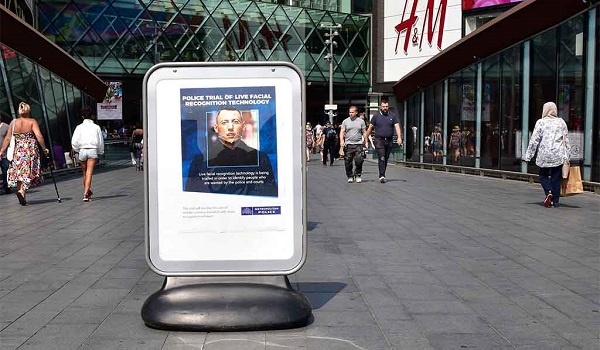First evidence-based trial begins on the use of body-worn video in domestic abuse incidents
The College of Policing will be working closely with Essex Police as the force begins a three-month trial of body-worn video (BWV) cameras tomorrow (Friday, January 17). The trial, announced last month, will see response officers equipped with the BWV cameras when they attend domestic abuse incidents.

The College of Policing will be working closely with Essex Police as the force begins a three-month trial of body-worn video (BWV) cameras tomorrow (Friday, January 17). The trial, announced last month, will see response officers equipped with the BWV cameras when they attend domestic abuse incidents.
Although a number of forces routinely wear BWV cameras when responding to reports of domestic violence, most notably Sussex Police, this is the first time independent researchers will analyse the evidence from their use during such incidents.
The trial will test whether BWV cameras improve the quality of evidence that officers capture when they attend domestic abuse incidents and also examine the outcome of those cases, such as early guilty pleas.
College researchers will then help Essex Police to assess whether the cameras make a difference.
The college says the trial will be the largest to date and will be a flagship design for other forces to replicate.
Essex Police Chief Inspector Nick Lee, who is is leading the implementation of the cameras, said 80 officers will wear the video cameras when responding to incidents of domestic abuse.
The trial will use equipment already owned by the force, but will focus its use in a new way, he explained.
We want to find out if video evidence will lead to more convictions for domestic violence, and in particular cases where victims are too frightened to give evidence themselves.
The College of Policing will look at the results of the video-captured cases compared to those that have no video.
This is a great opportunity for Essex Police to lead the way in evidence-based policing and improve our approach to tackling domestic abuse.
Alasdair Field, CEO of BWV specialist Reveal Media, says the cameras can also be independent witnesses for police officers as well as the public.
A small-scale trial in the US last year showed that BWV can reduce the number of public complaints and police use of force.
The study, conducted in the 66-officer police department in Rialto, California, found that complaints against police officers dropped 88 per cent and use of force by an officer dropped by almost 60 per cent after instituting body-worn cameras.
Rachel Tuffin, head of research at the College of Policing, said: As the first professional body for the service, the College of Policing is responsible for working with forces to assess if the cameras make a difference and building an evidence base to share across policing.
The results from the trial in Essex, along with those from other forces, will identify how BWV will be used to improve the delivery of policing services for the public.
It will also help police and crime commissioners (PCCs) and chief officers decide how best to use this technology locally across 43 forces in England and Wales.
Nick Alston, the Essex PCC, said: For complex and varied reasons, victims of domestic abuse are sometimes reluctant to give evidence against the person who has caused them harm. Equipping officers attending domestic abuse incidents with body-worn cameras means that evidence will often be captured automatically and directly. I fully support using technology to help ensure that there is no hiding place for those who commit domestic abuse.
Capturing the best possible evidence with body-worn cameras makes the chances of a successful domestic violence prosecution more likely, even in cases where the victim drops charges.
It is now common for the Crown Prosecution Service (CPS) to review evidence recorded on BWV cameras, which results in charges being pressed in cases that would otherwise be dropped.
The cameras allow a true and accurate reflection of the initial stages of the incident to be recorded.
Baljit Ubhey, Chief Crown Prosecutor for Thames and Chiltern CPS, confirmed that the cameras provide indisputable evidence, which will assist the CPS when making charging decisions and prosecuting cases at court.
Essex Police Chief Constable Stephen Kavanagh agreed, adding that the


